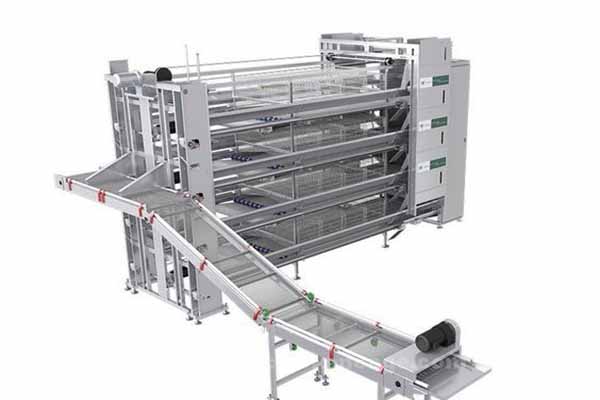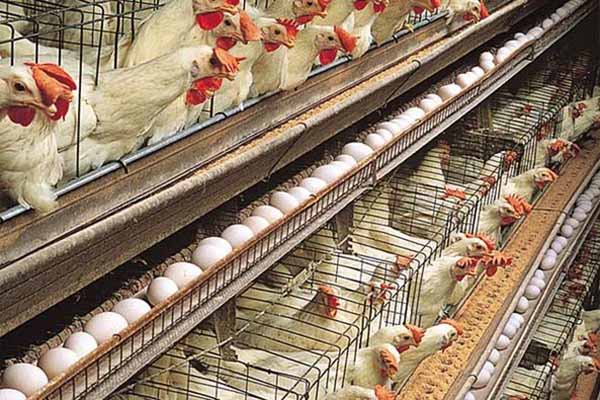How to Start a Chicken Farm in Ontario: A Comprehensive Guide
Time : 2025-06-30
Starting a chicken farm in Ontario can be a rewarding venture, but it requires careful planning and a solid understanding of the industry. This guide will provide you with a comprehensive overview of the steps involved in starting a chicken farm in Ontario, from initial planning to setting up your operation.
1. Market Research and Business Plan
The first step in starting a chicken farm is to conduct thorough market research. Understand the demand for chicken products in your area, including eggs and meat, and identify your target market. This will help you determine the size of your farm and the type of chickens you should raise.
Create a detailed business plan that outlines your goals, strategies, financial projections, and marketing plan. This will serve as a roadmap for your farm and can be crucial for securing financing or loans.
1.1 Conduct Market Research
Research the local market to determine the demand for chicken products. Consider factors such as population density, local competition, and the preferences of your target market. You can gather this information through surveys, interviews, and analyzing market reports.
1.2 Develop a Business Plan
Your business plan should include the following sections:
- Executive Summary: A brief overview of your business, including its mission, vision, and goals.
- Company Description: A detailed description of your farm, including its location, size, and the types of chickens you plan to raise.
- Market Analysis: A detailed analysis of the market, including your target market, competition, and market trends.
- Organization and Management: Information about your farm’s management structure, including the roles and responsibilities of key personnel.
- Service or Product Line: A description of the products you will offer, such as eggs, meat, or both.
- Marketing and Sales Strategy: A plan for how you will market and sell your products, including pricing, distribution channels, and promotional activities.
- Financial Projections: Detailed financial forecasts, including startup costs, operating expenses, revenue projections, and profit and loss statements.
- Appendix: Any additional information that supports your business plan, such as resumes, permits, or letters of intent.
2. Legal Requirements and Permits
Operating a chicken farm in Ontario requires compliance with various legal requirements and obtaining the necessary permits. Here are some of the key legal aspects you need to consider:
2.1 Zoning and Planning Permission
Contact your local municipal planning department to determine if your farm is zoned for agricultural use. You may need to obtain planning permission to ensure your farm meets local regulations and setbacks.
2.2 Health and Safety Regulations
Ensure your farm complies with provincial and federal health and safety regulations, including those set by the Canadian Food Inspection Agency (CFIA). This includes proper biosecurity measures to prevent disease outbreaks.
2.3 Environmental Regulations
Obtain any necessary environmental permits, such as an Environmental Compliance Approval (ECA), to ensure your farm’s operations are environmentally sustainable and do not pose a risk to local water sources or air quality.
2.4 Animal Welfare Regulations
Understand and comply with the Ontario Animal Welfare Act, which sets standards for the care and handling of animals on your farm.
3. Choosing the Right Location
The location of your chicken farm is crucial for its success. Consider the following factors when selecting a site:
- Proximity to Markets: Choose a location that is easily accessible to your target market, reducing transportation costs and time.
- Availability of Land: Ensure the land is suitable for agricultural use and has the necessary infrastructure, such as water and electricity.
- Climate and Weather: Consider the climate and weather patterns of the area, as they can affect the health and productivity of your chickens.
- Competition: Avoid locating your farm too close to existing chicken farms to minimize competition.
4. Building Your Chicken Coop
Your chicken coop is the cornerstone of your farm. Here are some key considerations when building or purchasing a coop:
4.1 Design and Layout
Choose a design that provides adequate space for your chickens to move around, nest, and roost. Consider factors such as ventilation, lighting, and insulation to ensure a comfortable environment for your chickens.

4.2 Equipment and Supplies
Invest in high-quality equipment, such as feeders, waterers, and nesting boxes. Ensure your equipment is easy to clean and maintain to prevent the spread of disease.
4.3 Biosecurity Measures
Implement biosecurity measures to protect your chickens from disease. This includes separating your chicken coop from other animals, controlling access to the farm, and regularly cleaning and disinfecting equipment.
5. Raising Chickens
Raising chickens requires a deep understanding of their needs, including proper nutrition, health care, and management practices.
5.1 Nutrition
Provide your chickens with a balanced diet that meets their nutritional requirements. This may include commercial chicken feed, supplements, and fresh water.
5.2 Health Care
Regularly monitor your chickens for signs of illness or stress. Implement a preventive health care program, including vaccinations, deworming, and regular veterinary check-ups.

5.3 Management Practices
Implement effective management practices to ensure the health and productivity of your chickens. This includes proper handling, regular cleaning, and monitoring of feed and water consumption.
6. Marketing and Sales
Develop a marketing and sales strategy to promote your chicken products and reach your target market.
6.1 Direct Sales
Consider direct sales methods, such as on-farm sales, far m stands, or farmers’ markets, to connect with customers and build a loyal customer base.
m stands, or farmers’ markets, to connect with customers and build a loyal customer base.
6.2 Wholesale and Distributors
Explore opportunities to sell your chicken products to wholesalers, distributors, or local restaurants and grocery stores.
6.3 Online Sales
Set up an online presence to sell your chicken products through your website or online marketplaces.
7. Financial Management
Effective financial management is crucial for the success of your chicken farm. Keep track of all your expenses and revenues, and regularly review your financial statements to ensure you are on track to meet your goals.
7.1 Budgeting
Create a detailed budget that includes all your startup costs, operating expenses, and revenue projections. This will help you manage your finances and ensure you have enough capital to











